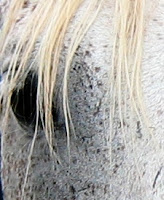Heaven Must Have Sent You

Chuck Pyle, fly fishing When musician and song writer Chuck Pyle passed away on November 6th, he'd been fly fishing on a lake close to home, casting out across the water, no doubt watching his line arc and loop as he reached for the shadowed depths. When Chuck didn't come home at dusk, his sweetheart Terri followed her own heart line, that mysterious filament that links two souls as surely as a nylon line links rainbow trout to faithful angler. Near dark, she headed out to the lake to find him… Chuck Pyle, Lambert wedding But that story is Terri’s to tell, not mine, and when she’s ready, I know her own poetry will lead her back to the peace and joy that Chuck’s music brought to the world. The story that is mine to tell is of the friendship that evolved between Chuck and Terri and John and me over the last ten years, and of the song that he sang at my daughter’s wedding. As my daughter walked arm in arm with her father toward the young cowboy to wh...








